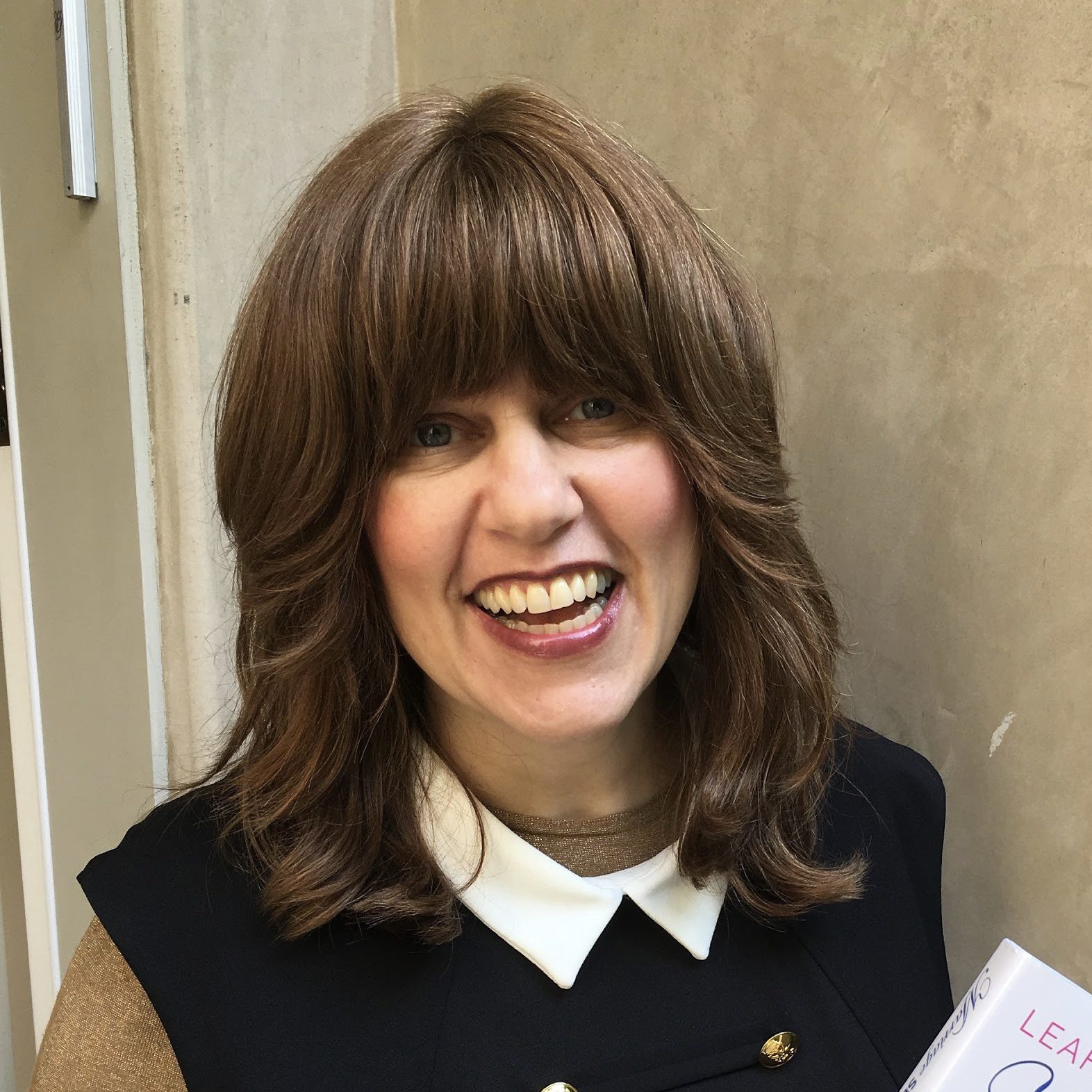Small Things, Big Impact

Meet three women who were surprised and gratified to discover small changes that could dramatically improve their relationship with the most important person in their lives

S uccess was always my goal — and to my pleasant surprise I achieved it in many areas. Then I got married. My husband was wonderful but I didn’t feel very successful in my marriage. What had gone wrong?
I turned to our Torah mesorah for shalom bayis insights. Suddenly, I had the keys: to being a cherished wife, having a happy husband, and building a blissful marriage. This learning curve inspired my quest to make shalom bayis a priority in every Jewish home. Women were surprised and gratified to discover small changes that could dramatically improve their relationship with the most important person in their lives. Meet three of these women, and learn the secrets they mastered. (All names and details have been changed to protect privacy.)
Un-phony Support
Baila ran a kindergarten in her home — as well as a gemach. She took very good care of everyone around her, but gave little to herself. In my class, she seemed happy to just sit back and listen.
Until I said the following: “The Shelah Hakadosh[1] writes that: ‘A woman should follow her husband’s will over her own will, even when in her eyes it seems baffling.’ ”
Baila sat up abruptly, and several women crossed their arms, frowning at me. “Where did you get that quote from?” she demanded.
I paused, hoping to defuse the sudden tension in the room, “It’s from Shaar HaOsiyos.”
“But we’re supposed to be an eizer k’negdo, helpmate opposite our husband!” Baila said. “How can you say we’re supposed to just go along with his crazy schemes? We’re meant to guide him on the correct path.”
Nods all around the room.
“So what do you think the Shelah meant?” I asked.
Baila furrowed her eyebrows. “I don’t know. But I was taught that our job is to speak up when we have insights about something. That women have binah yeseirah, and need to use it to help their husbands.” More nods.
I stepped away from the podium and sat in a chair nearer to the group. “Let’s examine this. How do we make sense of these two opposing concepts? And more importantly, how do we know what to do in a particular circumstance when it seems the prescribed actions are mutually exclusive? Do we follow our husband’s will, or do we act like a helpmate opposite him?”
No one seemed to know the answer, and I prayed that the answer I was about to give would be heard.
“Baila,” I began, “Without speaking lashon hara, can you tell us what you mean when you said, ‘go along with his crazy schemes’?”
“My husband already told many people about his plans, so I’m sure I can repeat it. He wants to buy a thousand cell phones from China and sell them here in America. He’s in real estate and knows nothing about this business, and we certainly don’t have that kind of money to gamble.”
“I hear. So what did you do?”
“I told him it’s crazy. But he won’t listen.”
“Okay, last week we discussed the fact that often, it’s not what you say, it’s how you say it.”
“Yeah, well, I wasn’t here last week,” Baila said. “So I probably said it too harshly. But come on, cell phones from China?”
“Okay, let’s pretend you hadn’t said it harshly, which might have put your husband on the defensive and made him less likely to listen. Let’s say you tried to dissuade him from the idea while being fully respectful of his need to feel in control of the decision, and he was still planning to buy them?”
Baila looked forlorn, “I don’t know. That’s the problem. That’s why I can’t get over what you said about following his will.”
“There is no contradiction. An eizer kenegdo’s job is to be a helpmate by assisting her husband to think things through. If that’s done kindly, she has the best chance of influencing her husband. But once her husband has made up his mind, then her job is to accept her husband’s will.
“For the most part, unless there are issues of abuse, in a healthy marriage a woman should offer her input, and then put her energy into being supportive of her husband’s decision. She needs to work at feeling, on a very deep level, that this decision is completely bashert. When a wife puts shalom first and foremost in her mind, even if it’s not a ‘perfectly correct’ decision, then the decision itself will be blessed[2]. We always think we know better, but who’s to say, maybe he’ll make a fortune on the phones?”
“Okay, this I can understand,” Baila responded, “and I’ll try to work on staying out of his business affairs. But are you saying I should follow my husband’s will about everything? For instance, our fridge is on its last legs. My husband wants me to buy a brand-new small fridge. But I’d much rather spend the same money getting a used large fridge with an ice maker. We’re having a whole battle about it, but it’s my kitchen! It’s so aggravating!”
I stood up and went back to the podium. Then I turned to Baila, “Do you think it might be possible that if you stay out of his business decisions, he’ll stay out of your kitchen choices?”
Baila smiled and nodded. So did many other women in the room.
I then suggest the following homework for Baila: To try not to say one more word about the phones. If her husband mentions them, she should support him fully on it, like it’s the best decision possible. And it is the best decision, because it will be blessed because she was mevater, for shalom.
When I visited Rebbetzin Leah Kolodetsky in Bnei Brak, I asked: If she had one message regarding shalom bayis, what would it be? Without hesitation, she looked me in the eye and said, “My father [Rav Chaim Kanievsky] gives over, in the name of the Chofetz Chaim, that nothing bad will ever happen if you’re mevater, if you give in. You may not see it directly, but if you are mevater, you’ll always gain.”
In the moment, following our husband’s will often feels like we’re losing out. But in actuality, it’s Hashem’s formula for our own contentment. Women in my class so often tell me that when they let go, and stop micromanaging their husband, their stress level goes way down, and their happiness goes way up.
The second suggestion I had for Baila was to try not to mention one word about the fridge for at least a month, if possible. Once she had fully supported her husband on his business venture for a while, there was a good probability that her choice of a fridge would no longer matter to him. There are no guarantees in life, but by following the words of Chazal, we’re on the road to success.
How it worked:
A few months later, Baila told me she’d worked hard to be supportive, even encouraging, of her husband’s purchase of the cell phones. In the end, much to her relief, the deal completely fell through. And Baila still hadn’t mentioned a word about getting a new fridge. She was just letting it go while she tried to follow her husband’s will as often as possible.
She added that this one shift has decreased the tension in the house so much, and she personally felt much less anxiety. She was also surprised that now that her husband didn’t have to fight for control all the time, he was much more open to her input in so many areas. Baila thanked me, but I told her that I just give over information; she was the one doing all the work! Baila laughed and said, “If I had realized how greatly my own serenity would be impacted by being more supportive of my husband’s choices, I would have tried it long ago!”
Listen Up
Chaya and I sat at a table littered with leftover cups of orange soda — remnants of kiddush at a shabbaton. We were the last ones in the ballroom, and Chaya gently rocked her stroller to lull her infant to sleep.
“Don’t get me wrong, I love my husband,” she said earnestly, “But sometimes we’re so harried trying to get through the day that I don’t feel such a deep connection.”
“What do you mean?”
“I sometimes feel like we’re just two ships passing each other. Time seems to race by, and I live with this constant hope that one day things will finally slow down and we’ll be able to connect. But then ten new things come up to keep me frazzled — a kid’s science project, a simchah, or a big project at work. I feel like I’ll never have a moment in my life to just exhale.”
“What picture comes to mind when you think of two people communicating with each other?” I asked her.
“Two people sitting on a couch, talking.”
“That’s what most people answer. But I’d like to give you an alternate way to think about communication: two people sitting on a couch listening.”
Chaya smiled, “I hear, okay. But what does this have to do with connecting with my husband?”
“The greatest way to savor your life in the moment is to focus on listening. It has the unique potential to allow you to form a deep connection.”
“How?”
“I don’t know!” I laughed. “But we have many Torah sources telling us how precious listening is in a relationship, and it’s borne out in hundreds of my students. When women sit and listen to their husband more, their level of closeness skyrockets.”
“The Vilna Gaon[3] says, ‘We were given two ears and only one mouth in order that we should listen more than we speak.’ Rav Aharon Leib Shteinman[4] says, ‘The essence of our power of speech is the strength to refrain from speaking.’
“It’s so customary for a wife to spend her time with her husband downloading her brain to him, perhaps even complaining about her day, that it never occurs to her how much closeness is available if only she’d spend part of that time listening.”
“That would be very nice, but my husband isn’t the type to start telling me how his day went!”
“How are you so sure?” I asked.
“Because he always answers everything with one-word answers. How was work? Fine. What happened at that important meeting today? Nothing. He’s worse than my kids!”
“I hear this all the time. But with enough concerted effort on your part, I believe your husband would begin to open up more.”
“Okay, how?”
“Before I tell you, I have to point out something crucial. Without sufficient motivation, this will never work. And the only way for a woman to get sufficient motivation is for her to understand the cost of not listening to her husband, and to recognize the benefits of doing so. So tell me, what are the costs of not listening?”
“Leah, I was hoping that you’d tell me that!” Chaya said as she pulled her kvetchy son out of the stroller and hugged him to her.
“Alright,” I acquiesced, “Without a wife to listen to what’s going on his life, a man feels more alone in the world. He can begin to feel like he’s just a machine that must fulfill all of his obligations, and no one truly understands him.
“The benefits of listening to him are that he begins to feel like he’s thoroughly sharing his life with his wife, going through the ups and downs together. Further, his troubles are halved because he’s not dealing with them alone. And lastly, he begins to rely on her as a source of support which binds the couple together.”
Chaya looked eager. “Okay, so how do I get my husband to talk?”
“First, figure out how to logistically fit listening time into your schedule. Dinner hour with the kids likely won’t work, ditto first thing in the morning. But what about after the kids are in bed, or on the phone at lunch time, or during a walk on Sunday mornings? Carve out time to just listen.
“Second, any time you catch yourself monopolizing the conversation, freeze. Then think of a question you can ask him. This will immediately shift you into listening mode, and your husband, hopefully, into talking mode. That’s the goal: less talk, more listening.”
Chaya nodded as I spoke.
“Third, try to coax the conversation out of your husband. Listening doesn’t come naturally to most people, but it does get easier once you make this a priority and begin to discover what works.
“Try to ask questions that won’t allow one-word answers, such as, ‘How did your boss react when you handed in the report?’ Focus on what your husband is saying, rather than waiting for him to finish so you can put in your two cents. Nod more, be silent more, interrupt less. The more you grow in this area, the more benefits you’ll accrue in your marriage.
“The Shelah Hakadosh[5] writes, ‘A woman should calm her husband when he is angry. When he is in pain, let him talk it out with her. When something bad happens, let her comfort him.’ Hashem created us to be able to draw our husband closer to us in this way.
“A wife is often talking so much that she doesn’t even realize that her husband has a desperate need to share himself with her as well. He often doesn’t even realize it himself. But the more he speaks to her, the deeper his love for her grows. There’s a treasure trove of riches waiting to be unlocked, and listening is the key to opening them up.”
How it worked:
Motzaei Shabbos, Chaya flagged me down to tell me that she had spent close to two hours listening to her husband that very afternoon! The kids were running in and out the whole time, which was quite a distraction. But she was shocked by how much her husband shared with her once she showed willingness to be there for him. And the most special part, she said, was that she now truly felt that deep connection she’d been longing for.
Breaking the Cycle
“My husband doesn’t know how to show he cares,” Esther said, a woeful look in her eyes. “I know he tries, but nothing ever hits the mark.”
“I hear,” I responded. “Can you give me an example?”
Esther twirled her brown sheitel around her finger. She was married just a few years, but the joy was gone from her face.
“I told him I wished he’d show more warmth, asked him to write me letters, to bring me flowers, to be more spontaneous. So he picks out this card with a long
sappy paragraph and writes, ‘love Moshe’ at the bottom. I was so hurt. I want him to express his own emotions, not someone else’s!
“And his idea of being spontaneous is Motzaei Shabbos he told me to get dressed, he had a surprise, and he took me out for ice cream. Really, that’s a surprise? I mean I should be happy, he’s trying, but I feel like he just doesn’t get it. I’m stuck married to a man who will never be able to really express his feelings.”
I nodded, contemplating my next words. I could feel her pain, but there was also a niggling part of me that felt she was in a prison of her own making.
“Can I ask you something? You don’t have to respond if you don’t feel comfortable answering, but did you read romance novels when you were growing up?”
A coy smile spread across her face. “What makes you ask that? I was kind of addicted to them as a teenager.”
“How do you think they might have effected your expectations of your husband and of marriage?”
More finger twirling. “Maybe it makes me expect my husband to be a certain way.”
I nodded and kept silent.
Esther’s tone changed; she now seemed desperate. “So you think my expectations are unrealistic? And because of that, I now have to live with a man who doesn’t know how to show affection?”
As gently as I could, I said, “How certain are you that it’s your husband who can’t show affection, versus the possibility that you may not be capable of receiving affection?”
To her credit, Esther paused to reflect. “Explain what you mean.”
“If you aren’t feeling loved, there are two possible reasons. One is that he isn’t showing it, but the other is that no matter what he does, you’re incapable of letting it in.”
Esther shifted in her seat. Finally, she answered, “I suppose it’s possible.”
“I’m impressed that you’re willing to explore it. If it were the case, why might you have a difficult time receiving from him?”
“I guess from resentment that he’s not who I hoped he would be.”
“Okay, why else?”
She thought for a moment. “Maybe because he doesn’t show it the way I need it?”
“Okay. But these are reasons why he’s disappointing you. I want to hear what you bring to the marriage. Before you were married, were you able to feel your parents’ love fully, or your siblings’ love?”
“My sisters, yes. My mother, a bit. My father, no.”
“Why not from your father?”
Esther stared at me. “He never had time for me, and to this day I can’t even be sure that he’s glad he had me. He was always harsh, like I was a bother.”
I wish I was better at holding in my emotions, but she saw the sadness on my face.
“It’s not like I was abused or anything. I had a fine childhood, but my Dad just couldn’t show his affection.”
“How do you think this might relate to your marriage?” I asked, hoping she’d connect the dots.
“Well, it’s interesting that I married a man just like my father. I never realized that.”
“Or could it be possible,” I said, going out on a limb, “that you grew up accustomed to yearning for your father’s affection, and then created a relationship where you now yearn for your husband’s affection? People are often more comfortable with the familiar, even if it’s painful.”
Esther sunk her head into her hand, deep in thought.
After a moment, she looked at me. “What do I do?”
I suggested two homework assignments. One was to get herself a notebook and, before she went to bed, she was to write down one thing her husband did that day that showed his affection for her. She might write down that her husband called to tell her he’d be late; he helped clear off the dishes; he told her she looked nice; he didn’t nag her about finishing the project on the dining table.
Gratitude is fundamental for relationships. Mishnas R’ Eliezer states: “Those who do not appreciate what another person does for them (hakaras hatov) will ultimately deny the good that Hashem does for them as well. [6]”
This exercise would also help her to see, and then hopefully feel, the love her husband was already showing her. Feeling loved doesn’t come naturally to everyone, but taking the time to strengthen our ability to notice kind gestures is a surefire method for feeling more loved.
There are so many things we take for granted, and then we end up not feeling loved enough. But if we open our eyes to even the routine acts of affection, we’ll feel more loved — and that’s without our husband ever changing at all. And the more loved we feel, the more capable we are of maximizing our potential as wives and as women.
The second homework I suggested to Esther was to make a list of all of the ways her unrealistic expectations were interfering with her marriage. We began a list together. Her first example was that she unfairly wished Moshe would always express his emotions in writing, which derived from her favorite novel. Many men are extremely devoted husbands but do not have this particular skill.
Another expectation Esther had was that their times together should be magical. But she also freely agreed with me that, of course, everything was perfect in books — there’s no dirty laundry or mud tracked onto the carpet. Real life is fraught with minute-by-minute challenges, and Hashem designed it that way to bring out the best in us. Her “unmagical” moments with Moshe were perfect for learning how to be close even in the midst of the chaos of life. She agreed that her expectations of marriage were too idealized, and she planned to work on that by trying to be tolerant of challenges rather than wishing everything was perfect.
How it worked:
The real turnaround in Esther’s thinking was the realization that her biggest disappointment in marriage — that Moshe didn’t know how to show his affection — was sourced in her own inability to feel loved. This deep insight was the beginning of a healing process that gave Esther the determination to work on recognizing Moshe’s kind gestures, as well as identifying the times when she overlooked his attempts to show concern for her.
Esther also said that listing the examples of affection her husband had shown to her was life-altering. She didn’t keep up with it as often as she would have liked, but the exercise moved her into a mindset of seeing the glass as half full, rather than as half empty. When she was busy taking the time to notice Moshe’s signs of affection, it became increasingly difficult to delude herself that they weren’t there. Esther told me that this new perspective gave her a whole new future with her husband.
As these stories illustrate, our mesorah has so much to teach us about shalom bayis. The more we make marriage a top priority and strive for shalom bayis using the wisdom of the Torah, the more blessings from Shamayim we bring into our world.
Leah Richeimer is the host of the Ladies Talkshow and founder of the Marriage Campaign, a non-profit global initiative to make marriage a top priority in frum life. Her book “Marriage Secrets” was just released by ArtScroll.
[1] Shaar HaOsiyos: Derech Eretz.
[2] R’ Moshe ben Chalafta said, “The Holy One, blessed be He, could find no container that would hold Israel’s blessings as well as shalom.”[1] Uktzin 3:12.
[3] Mishlei 11:2.
[4] Shaar Kedushah, Chapter 11
[5] Sha’ar HaOsiyos Derech Eretz.
[6] Chapter 7.
(Originally featured in Family First Issue 546)
Oops! We could not locate your form.












